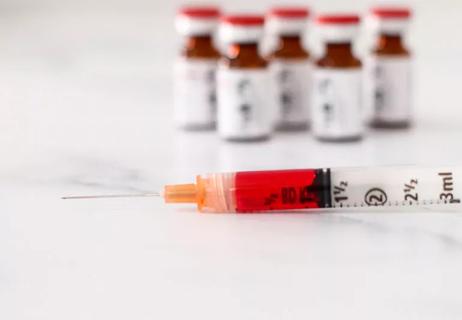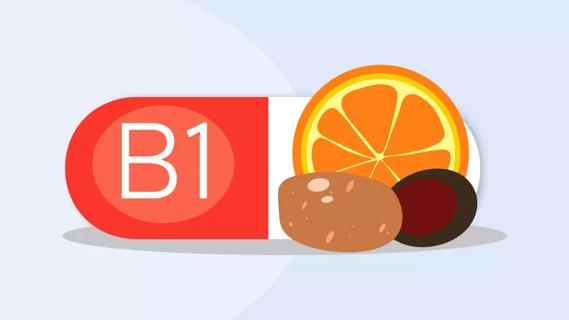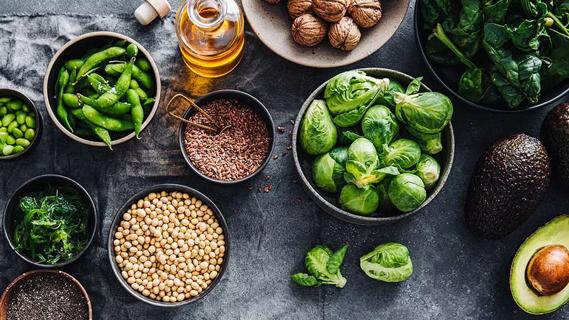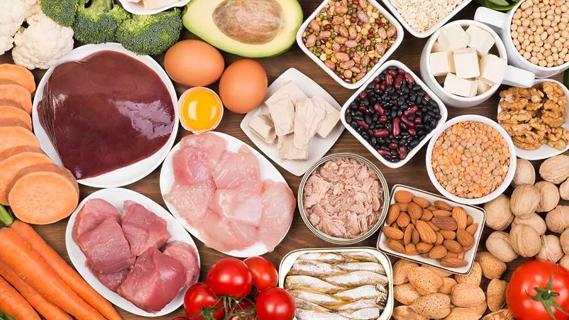Advertisement
Vitamin A helps protect your vision and is critical for your immune system

Were you ever told as a kid to eat carrots because they would help you see better? Well, that’s not completely off — carrots contain vitamin A, a nutrient that can help protect your vision (among other jobs).
Advertisement
Cleveland Clinic is a non-profit academic medical center. Advertising on our site helps support our mission. We do not endorse non-Cleveland Clinic products or services. Policy
Your body doesn’t naturally produce vitamin A, but you can find it in many foods. It’s also available as a nutritional supplement. But unless you have a diagnosed vitamin A deficiency, it’s always best to meet your vitamin needs through a balanced, healthy diet.
“Because so many foods contain vitamin A, it’s easy to get it through your meals,” says dietitian Elyse Homan, RD, LD. “But you also have to know how much vitamin A is enough — and how much vitamin A may be too much. It’s a balancing act.”
Homan shares how to increase your intake without going overboard and explores the many vitamin A benefits.
Vitamin A is a critical vitamin that helps your body develop and function properly. There are two types of vitamin A, which come from different sources:
This nutrient plays many important roles. Vitamin A is good for supporting healthy fetal growth and development and beyond, as well as:
One of vitamin A’s most important roles is to preserve and maintain your vision. It helps change the light that hits your eye into an electrical signal that can be sent to your brain.
Your body also uses vitamin A to make pigments for your retinas to work well, and moisture for your corneas. An early sign of vitamin A deficiency is night blindness (nyctalopia), which can lead to permanent vision loss if untreated.
Advertisement
Foods rich in vitamin A might reduce your risk of developing cataracts or age-related macular degeneration (AMD). Vitamin A may even restore some vision loss, according to one study.
Vitamin A strengthens your immune system by supporting white blood cells and the mucus membranes in your lungs, intestines and urinary tract. This helps you ward off infection and toxins (also called free radicals) that cause inflammation and disease.
Giving vitamin A supplements to children with measles has been shown to reduce the severity of the disease, according to the World Health Organization. In other words, vitamin A can sometimes save lives.
Vitamin A plays a key role in the healthy growth and development of your cells. But no one knows for sure if it also helps lower your risk of developing cancer.
Some studies suggest that consuming higher amounts of beta-carotene or vitamin A from plant foods may protect against certain types of cancer, such as non-Hodgkin lymphoma. But other research has shown that high doses of vitamin A supplements actually increased the risk of cancer and death in those who smoke or used to smoke.
“It’s too early to say whether either form of vitamin A can help us prevent or treat cancer,” says Homan. “We need much more information to make that connection.”
Many people claim vitamin A is an effective treatment for acne and age-related skin changes, including wrinkles and age spots. But it’s important to use vitamin A for skin health with care, whether you add vitamin A-rich foods to your diet or use vitamin A-based skin treatments like pills or creams.
Eating too little vitamin A can lead to blocked sweat glands, increasing your risk of developing acne. Too much vitamin A (hypervitaminosis) can discolor your skin and cause it to become dry.
Prescription retinol has been shown to improve acne, but we need more research to show whether non-prescription forms also help. Retinol treatments can also make your skin highly sensitive to the sun. Talk to a healthcare provider or dermatologist about effective care for your skin type.
Advertisement
Adequate amounts of vitamin A in your diet are essential for healthy reproductive function. Vitamin A deficiency can lead to infertility and cause delayed growth and development in children.
But too much vitamin A during pregnancy can harm the fetus, causing birth defects and increased risk of infection and disease. People who are pregnant should avoid foods that contain large amounts of vitamin A, such as pâté and liver, as well as vitamin A supplements.
Vitamin A helps maintain proper bone growth and development, lowering your risk of injury or disability. But it’s important to strike a balance. Researchers have found that vitamin A may also be associated with a higher risk of bone health issues, including hip fractures and osteoporosis.
Foods rich in vitamin A include fruits and vegetables, meats, fish and nuts. “It’s fairly easy to consume a healthy dose of vitamin A without supplements,” notes Homan. “You just need to know what to look for.”
Here are some foods that are good sources of vitamin A:
Your recommended vitamin A intake (in micrograms) is:
| Age | Recommended Daily Value |
|---|---|
| 6 to 11 months* | 500 mcg |
| 12 to 23 months* | 300 mcg |
| 2 to 18 years (assigned female at birth, AFAB) | 300 to 700 mcg |
| Over 18 years (AFAB) | 1,600 to 1,800 mcg |
| 2 to 18 (assigned male at birth, AMAB) | 1,400 to 2,200 mcg |
| Over 18 years (AMAB) | 2,000 to 2,400 mcg |
| 14+ years and pregnant | 750 to 770 mcg |
| 14+ years and lactating | 1,200 to 1,300 mcg |
| Age | |
| 6 to 11 months* | |
| Recommended Daily Value | |
| 500 mcg | |
| 12 to 23 months* | |
| Recommended Daily Value | |
| 300 mcg | |
| 2 to 18 years (assigned female at birth, AFAB) | |
| Recommended Daily Value | |
| 300 to 700 mcg | |
| Over 18 years (AFAB) | |
| Recommended Daily Value | |
| 1,600 to 1,800 mcg | |
| 2 to 18 (assigned male at birth, AMAB) | |
| Recommended Daily Value | |
| 1,400 to 2,200 mcg | |
| Over 18 years (AMAB) | |
| Recommended Daily Value | |
| 2,000 to 2,400 mcg | |
| 14+ years and pregnant | |
| Recommended Daily Value | |
| 750 to 770 mcg | |
| 14+ years and lactating | |
| Recommended Daily Value | |
| 1,200 to 1,300 mcg |
*Adequate Intake
Source: 2020-2025 Dietary Guidelines for Americans
Vitamin A from foods is considered safe. But you can get too much vitamin A from supplements.
While vitamin A has many benefits, too much can be harmful. Your body stores the leftovers it doesn’t immediately need. They may build up to an unsafe level and lead to:
Advertisement
Most multivitamin-mineral supplements also contain vitamin A. But in most cases, you don’t need to take supplements if you’re getting enough of what you need from food.
“Unless you have a limited diet or a condition that increases your need for vitamin A, you can find all the vitamin A you require in a balanced diet,” Homan advises. “Plus, in the case of vitamin A, you don’t want to run the risk of consuming too much.”
If you suspect you may lack vitamin A, talk with a healthcare provider about next steps. Your symptoms and a blood test can confirm diagnosis and guide treatment.
Advertisement
Learn more about our editorial process.
Advertisement

If you’re taking supplements, it’s important to understand which vitamins and minerals you can get too much of, like vitamin C and calcium

There are several vitamins and mineral supplements that many people can benefit from — but it’s important to consult with a healthcare provider before you start one

If you have low B12 or a true deficiency, these shots can work wonders

A daily dose of vitamin D can help babies build strong bones, as well as boost their brain development

Getting enough thiamine in your diet can protect your heart, brain and nervous system

Also known as pantothenic acid, vitamin B5 helps your metabolism and is found in a wide range of foods

Easy to get from healthy foods, vitamin E can help protect your eyes, boost your immune system and may lower your risk of cancer

B vitamins do a lot for your body, like activate enzymes that give you energy, create blood cells and prevent DNA damage

Focus on your body’s metabolic set point by eating healthy foods, making exercise a part of your routine and reducing stress

PFAS chemicals may make life easier — but they aren’t always so easy on the human body

While there’s little risk in trying this hair care treatment, there isn’t much science to back up the claims